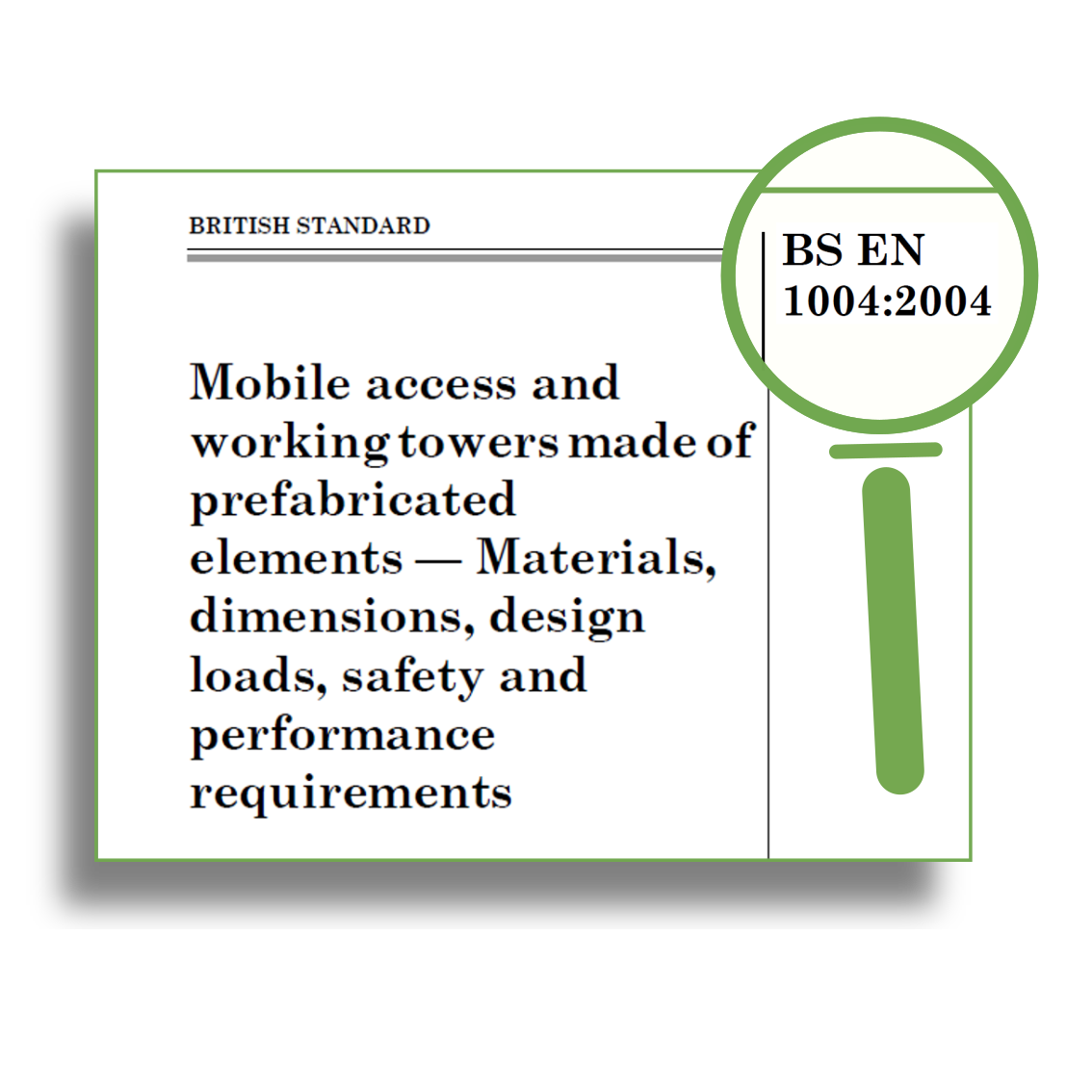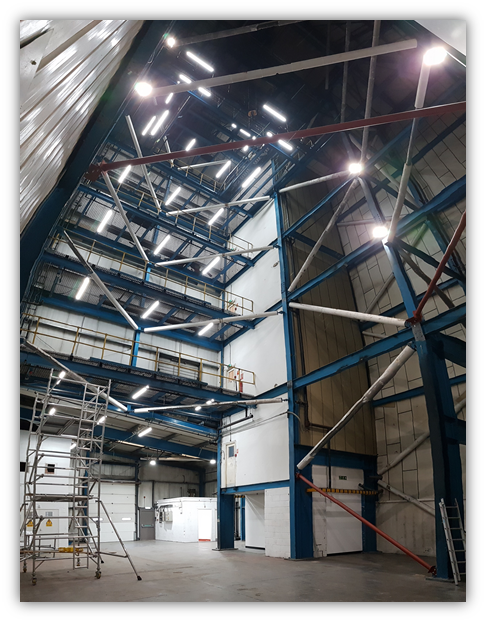14th May 2020
All International, European and National standards are reviewed and subject to possible revision at least every 5 years.
EN 1004, or Mobile access and working towers made of prefabricated elements to give it its full title, was first published in 2004. This was its first publication and superseded HD 1004 – the first Harmonised Standard in Europe for mobile towers.
Following consultation across Europe, it was decided a revision was needed because:

After 10 years of hard work, CEN Technical Committee 53 Working Group 4 is about to publish the revised EN 1004. This is due for publication in the middle of 2020. I’ve been involved from the first meeting – it has been a long journey with some really interesting discussions along the way. Finding out and understanding how towers are used differently across Europe was eye opening. It really gives a greater understanding of the product and its uses.
EN 1004:2004 (and BS EN 1004:2004) will be withdrawn and made obsolete, 6 to 12 months after publication of the revised version. The actual date has not yet been agreed, but we should know this within the next couple of months.
The industry body for the scaffold tower industry, PASMA, will be issuing further guidance on the effect of the changes.

Mobile towers have a diverse range of stakeholders – from designers to hire companies and safety professionals to construction workers. The changes will effect each group and each product differently. Each group will need to consider the revised requirements and the impact on product design, use and training.
Some of the changes are fairly minor editorial corrections, like bringing the format of the standard into line with current CEN principles for standards. But there are also some significant changes which everyone involved will need to consider carefully.
One of the key changes is to the scope of EN 1004:2020. It has been updated to now cover mobile towers from ground level. The 2004 version had a minimum platform height of 2.5m. This means that all towers from the ground up have the same requirements for side protection, stability and strength. This change has led to new requirements for access to towers below 2m platform height.
Another significant change is clearer requirements for side protection on intermediate platforms. Across Europe, different countries interpreted the guard rail requirements differently. The 2004 version talks about side protection (guard rails and toe boards) on the working level.
For some countries, this meant that access or intermediate levels only needed a single upper guard rail, at best, as a hand rail during assembly. Other nations, like the UK and France, have legal requirements for side protection anywhere where a fall from height can occur.
After much consideration and debate, over several meetings, the committee concluded that intermediate platforms should have the same protection as the working platform, and that only toe boards may be omitted.
The standard also includes:
Manufacturers and importers of mobile tower systems, currently produced and certified to EN 1004:2004, will need to update their products.
After publication of EN 1004:2020, both standards will exist in parallel for what is called the “implementation period”. This time allows for producers to update and revise their product to the new revision, and have it independently certified.
At the end of the implementation period, the 2004 version will be withdrawn and superseded by the 2020 version. All new mobile towers after this date should be compliant to EN 1004:2020.
Based on our knowledge and experience of the scaffold tower industry, we can help mobile tower producers with product certification to EN 1004:2020.
When the new standard is published, we will be the first to offer product testing and certification, using our T&RGETMARK.
If you are a manufacturer, supplier or importer looking at product testing and certification to the new standard, contact us for a friendly chat about how we can help.
34 Regal Drive, Soham, Cambridgeshire, CB7 5BE.
A UK-based Certification Body, Test Laboratory and training facility that specialises in access equipment.